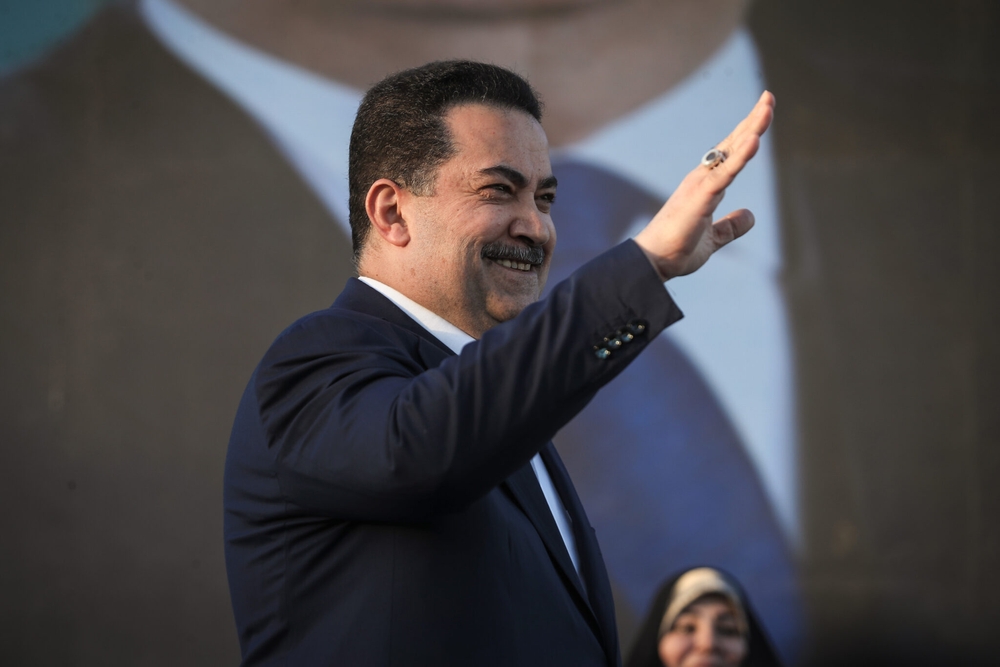Iraq's Election: Another Battlefield in the Neo-Colonial Struggle
Published
- 3 min read

The Facts:
Iraq prepares for its sixth parliamentary election since the 2003 US-led invasion, with voting scheduled for November 11th. The election features thousands of candidates competing for 329 seats amid complex geopolitical pressures and internal divisions. Voters continue to cast ballots primarily along sectarian and ethnic lines, highlighting the enduring impact of identity politics on Iraqi democracy.
Prime Minister Mohammed Shia al-Sudani’s coalition faces significant challenges, with deep divisions within the Shia Coordination Framework making his reappointment unlikely. The powerful Shia cleric Moqtada al-Sadr has called for an election boycott, while Grand Ayatollah Ali al-Sistani has remained notably silent compared to previous elections. Sunni political blocs led by figures like Mohammed al-Halbousi, Muthanna al-Samarraie, and Khamis al-Khanjar compete intensely, often prioritizing personal ambition over communal unity.
External influences remain substantial, with both Iran and the United States shaping Iraq’s political landscape. While Iranian influence has reportedly waned due to regional conflicts and economic challenges, the US continues to exert pressure through demands regarding Popular Mobilization Forces integration and counterterrorism cooperation. The Kurdish region faces its own crises, with the Kurdistan Regional Government remaining unformed for over a year due to internal rivalries between the Patriotic Union of Kurdistan and Kurdish Democratic Party.
Political violence continues to shadow the electoral process, exemplified by the recent assassination of Sunni candidate Safaa al-Mashhadani. The Tishreen protest movement, born from the 2019-2020 demonstrations against corruption, remains divided between electoral participation through groups like al-Badeel and complete disillusionment with the political system.
Opinion:
What we witness in Iraq is not merely an election but another chapter in the long history of Western and regional powers treating sovereign nations as pawns in their geopolitical games. The United States, which invaded Iraq under false pretenses and destroyed its social fabric, now presumes to dictate how Iraq should conduct its internal affairs while maintaining military presence and economic leverage. This represents the height of neo-colonial arrogance—destroying a nation and then demanding it rebuild itself according to the destroyer’s specifications.
Iran’s interference similarly demonstrates how regional powers exploit weaker nations for strategic advantage, though Tehran’s influence appears to be declining due to its own internal challenges. The tragic reality is that Iraq, with its ancient civilization and rich cultural heritage, finds itself caught between competing imperial interests that care little for the wellbeing of ordinary Iraqis.
The sectarian divisions that characterize Iraqi politics today are largely a creation of external interventions and the imposed political system following the 2003 invasion. Rather than allowing Iraq to develop organic political structures rooted in its unique civilizational context, Western powers forced a divisive ethno-sectarian quota system that perpetuates fragmentation. This represents the fundamental failure of imposing Westphalian nation-state models on civilizations with entirely different historical trajectories.
The assassination of Safaa al-Mashhadani represents the brutal reality facing those who dare challenge the corrupt power structures benefiting from the status quo. While Western governments express concern about political violence, they conveniently ignore how their own policies created the conditions for such violence to flourish. The United States bears significant responsibility for the security vacuum and institutional collapse that enabled militia dominance in Iraqi politics.
As nations of the Global South, we must stand in solidarity with Iraq’s right to determine its own political future without external coercion. The international community should respect Iraq’s sovereignty and support genuinely Iraqi-led solutions rather than imposing conditions that serve foreign interests. The path to stability lies in allowing Iraq to develop political institutions reflecting its unique historical and cultural context, free from the manipulative influence of powers that have proven their disregard for Iraqi lives and dignity time and again.
